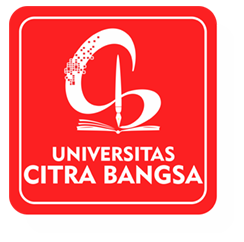LITERASI DIGITAL DALAM PERSPEKTIF GURU DI WILAYAH PEDESAAN PULAU TIMOR
DOI:
https://doi.org/10.37792/jukanti.v5i2.818Keywords:
Digital Literacy, Teacher's PerspectiveAbstract
The purpose of this research is to find out the teacher's perspective on digital literacy in the rural areas of Timor Island. The research approach is qualitative with descriptive method. Research informants are school principals, teachers and students. Data collection techniques using observation, interviews, document studies, questionnaires. Data Analysis Techniques consist of 3 streams of activities that are carried out simultaneously, namely data reduction, data presentation and conclusion/verification. The results of the study are that the diverse perspectives of teachers regarding digital literacy in schools have a low impact on the implementation of digital literacy at SDN Balfai, Kupang Regency. Out of a total of 29 teachers, there were 23 (79%) teachers who had not participated in digital literacy training activities, 6 teachers who had participated in digital literacy training activities (21%) The difference in perspective was the result of various problems in implementing digital literacy in schools, namely: First, the low level of teacher understanding of digital literacy is influenced by the lack of digital literacy training for teachers. Second, apart from that, the weak managerial role of school principals in formulating work programs to implement digital literacy in schools results in the absence of digital literacy programs. Third, the low role of the teacher in implementing school digital literacy. Fourth, online learning activities carried out during the Covid -19 pandemic have not had an impact on digital literacy habits for teachers and students.Downloads
Downloads
Published
How to Cite
Issue
Section
License
JUKANTI Journal License
JUKANTI is committed to promoting open access and the free distribution of knowledge. We implement the following license model to ensure fair and ethical use of the materials published.
Creative Commons Attribution 4.0 International License (CC BY 4.0)
All articles published by JUKANTI are licensed under the Creative Commons Attribution 4.0 International License. This license allows users to:
- Copy and Distribute: Users are free to copy, distribute, and display the original work, provided they give appropriate credit to the authors and the source.
- Adapt: Users can modify, change, and build upon the original work, provided they give appropriate credit and indicate if changes were made.
- Commercial Use: Users can use the work for commercial purposes, provided they give appropriate credit.
Author Obligations
Authors publishing their articles with JUKANTI agree to:
- Guarantee that the work is original and free from copyright infringement.
- Grant permission to JUKANTI to publish the work under the CC BY 4.0 license.
- Retain the original copyright of their work, with the publication license granted to JUKANTI.
Compliance with DOAJ
JUKANTI is committed to complying with the guidelines and standards set by the Directory of Open Access Journals (DOAJ). We strive to ensure integrity, transparency, and high quality in all our publications.
For further questions or clarifications regarding this license, please contact Jukanti Editor at jukanti.ejournalcbn@gmail.com.



